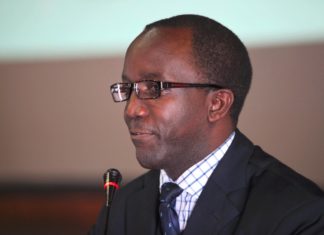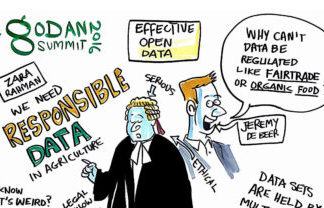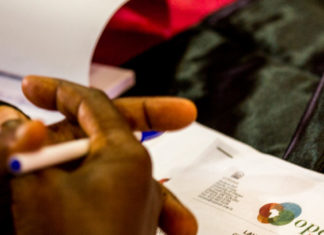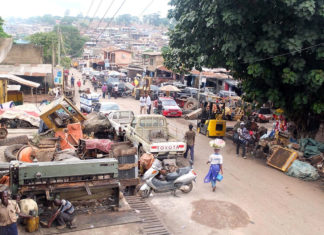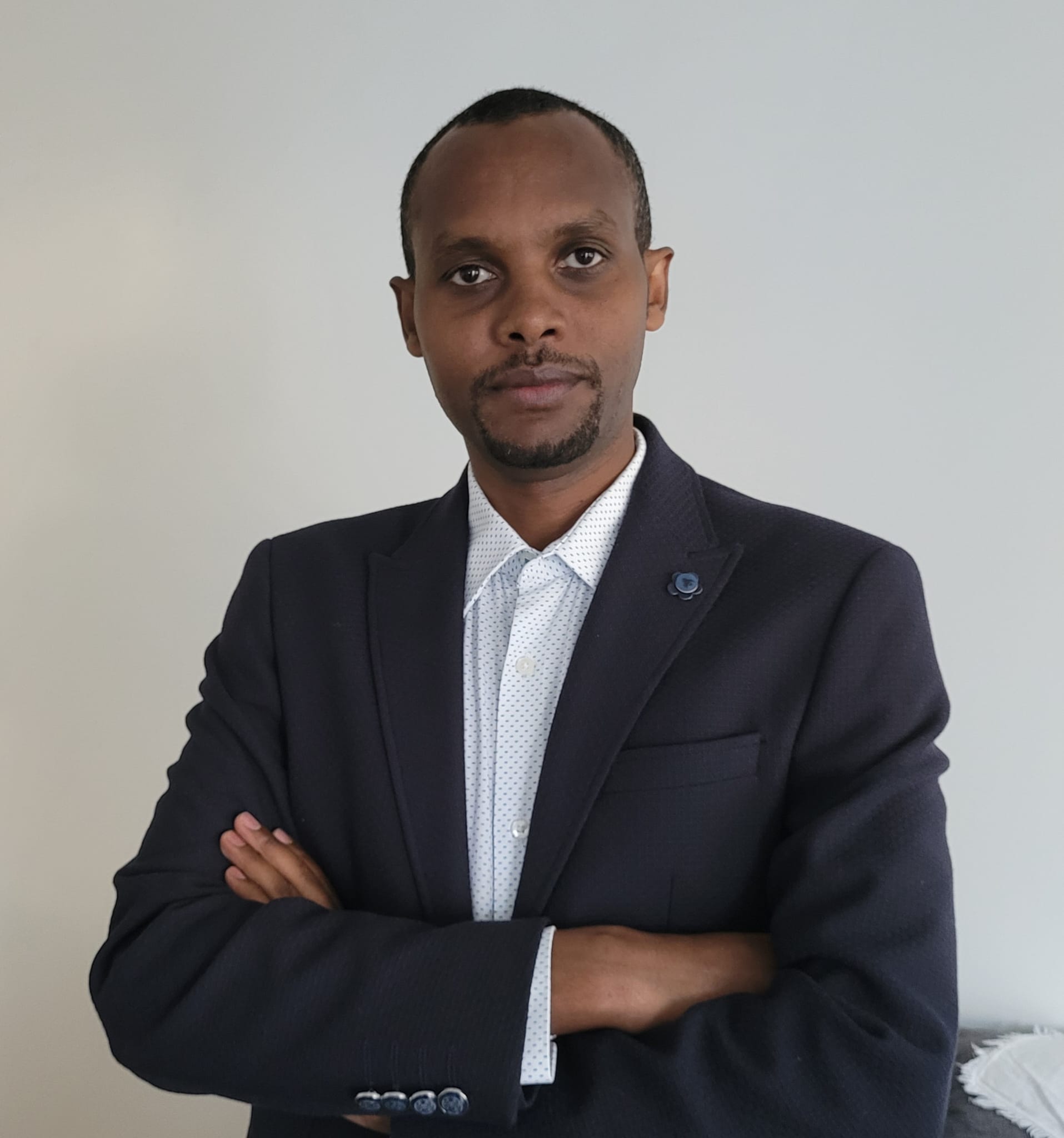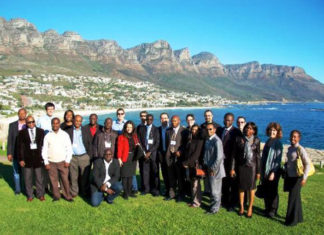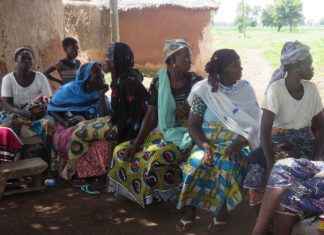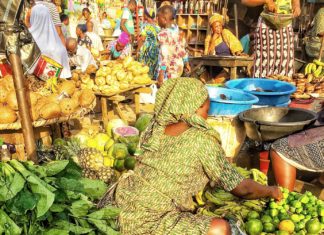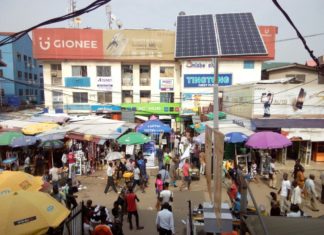Dr. Kakooza “Dealing with Trans-Border Quasi-Intellectual Property”
In October 2010, Yoweri Museveni, the President of Uganda, recorded a rap song titled: "Do You Want Another Rap?" as part of his re-election campaign to capture the imagination of young voters. The song was a huge success and may have played a part in his reelection. When Museveni applied for a copyright registration of the song, however, members of the Ankole community filed an objection stating that the song was derived from Ankole folklore. While the Registrar of Copyrights in Uganda eventually allowed Museveni's copyright application for registration, this case triggered Dr. Anthony Conrad K. Kakooza's interest in the area of traditional cultural expressions (TCEs) and whether TCEs should be recognized within the domain of intellectual property (IP) law.
Open Data and Ownership at the Global Open Data for Agriculture...
By Jeremy Baarbé
(Picture: courtesy of Drawnalism)
Open data has the potential to end global hunger. Farmers, government ministers, NGOs, and private firms gathered to collaborate...
Open AIR NERG presents at Windsor Symposium on Copyright User Rights...
By Uchenna Ugwu
How can “user rights” and exceptions to copyright be used most effectively to ensure access to knowledge for all? This question is...
Skills Development and Innovation at Suame Magazine, Ghana
Funded by the Open AIR network, my case study is about skills development and innovation at Ghana’s Suame Magazine Industrial Cluster. The research I am conducting seeks to understand the processes and systems that contribute to how knowledge is or is not shared and how skills are acquired in one of West Africa’s largest informal sector industrial clusters, Suame Magazine. How skills are learned and what is communicated between those in the industrial cluster will help us to learn how innovations are shared and taught among these informal businesses.
The State of AI-Driven Humanitarian Big Data Governance and Law in...
Introduction
In 2020, Ethiopia, a country that has faced a refugee crisis primarily because of long-term conflicts, experienced a deadly war that displaced many Ethiopians...
Open AIR receives multimillion dollar SSHRC Grant
Open AIR's Canada hub has been awarded a prestigious multimillion dollar Partnership Grant from the Social Sciences and Humanities Research Council (SSHRC) of Canada. Professors Jeremy de Beer and Chidi Oguamanam, both from the Common Law Section at the University of Ottawa, have been awarded a grant to expand the Open AIR network and to conduct further research.
Feminine Wisdom as an Axis to Traditional Knowledge in Africa
By Michael P.K. Okyerefo*
The pivotal place of feminine wisdom in Africa may surprise a good many outsiders! As one of my friends would always...
Women Bridging the Gap of Change and Innovation in Africa
By Mnena Abuku
Women
in Africa have faced a diversity of struggles in their efforts toward
sustainable development. This is largely because globalisation has brought more
burdens upon...
Shifting Horizons Conference
By Michael Dao
On March 28th, 2019, the University of Ottawa
hosted the Shifting
Horizons: Managing Your Research Data Conference, a day-long series of
workshops for researchers. I...
Understanding the Dynamics of Knowledge Transfer in Nigeria’s Otigba Hardware Cluster
So what is the Otigba Computer Village? Oyelaran-Oyeyinka in 2006 described it as the biggest ICT hub of West Africa – perhaps the biggest ICT market in all of Africa – because of the size and the volume of business activities carried out on a daily basis within the cluster. The research I have been conducting looks at the knowledge dynamics at play in the informal ICT businesses in the cluster, with a view to understanding how these dynamics drive informal enterprises’ innovation and scaling-up. While other studies of the cluster have evaluated the size and capacity of the cluster, the evolution of the cluster, mode of operation, performance, sustainability and constraints, there are no studies looking at how the local businesses identify new and useful knowledge. With over 5000 businesses in the cluster, there is bound to be knowledge exchange either through spillover or conscious transfer. How is this happening?

